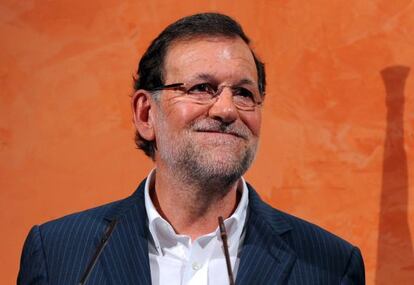Popular Party regaining momentum after May election disaster
New opinion poll reveals waning support for new anti-austerity group Podemos


Despite the poor results it garnered at the May 24 regional and municipal elections, the conservative Popular Party (PP) appears to be gaining fresh momentum among voters, according to a new poll released on Wednesday.
Results of the government-funded Centre for Sociological Research (CIS) survey, which was taken early last month, puts the PP in the lead in terms of voter intention, with 28.2% support, followed by the Socialists, with 24.9%.
Spanish voters say unemployment is their major concern followed by public corruption
Support has dropped slightly for the anti-austerity Podemos party since the last CIS poll, which was released in April. The party headed by Pablo Iglesias received 15.7% approval from voters – down by 0.8% from before the May elections.
Also losing backing was the center-right Ciudadanos party, which is down to 11.1% from 13.8% four months ago. Yet Albert Rivera’s emerging political force is still ahead of the mere 3% it garnered in January polling data.
While the survey shows an improved response to the PP, which in April received 25.6% support, Pedro Sánchez’s Socialists received a slight rise from the 24.3% backing before the elections.
In national issues, nearly 79% of Spanish voters said that unemployment is their major concern, followed by public corruption and fraud (43.7%), the economy (25%) and the political parties (19.1%).
When asked hypothetically about a possible government coalition, poll results show that Spaniards would prefer a Socialist-Podemos alliance (21.1%) rather than the PP governing alone (11.6%). Only 5% said they would like to see a PP-PSOE coalition.
Since the May 24 race, which saw the PP lose important strongholds across the country, Rajoy and his administration have embarked on a blitz strategy to regain voters’ confidence, which had been lost following a series of public corruption scandals and with the introduction of painful austerity measures.
On Tuesday, the government said that it would reduce personal income tax rates next year if the PP wins the general elections, and announced a 3.8% hike in social spending as part of its proposed 2016 budget. Income tax rates were lowered on July 1, bringing them down to the level they were before Rajoy took office in December 2011.
The PP administration has also announced that it will extend the AVE high-speed rail service to León, Burgos, Zamora and other cities next year while pledging to bring down unemployment to 15 percent by 2018, according to news agencies.
In other results, the United Left (IU) coalition received 3.7% support in contrast to the 4.8% backing it got in April.
Although not well-known on the national level, Navarre premier Geroa Bai is highly praised
Union, Progressive and Democracy (UPyD), which is undergoing an internal leadership crisis stemming from a defection of its members to Ciudadanos, continues to drop in the polls, from 1.9% percent to 1.3% in July.
Pedro Sánchez, the Socialist secretary general, is the third most highly appraised politician in Spain (3.84%), according to the CIS poll. Rajoy received a 2.61% approval rating.
Although she is not well known on the national level, Navarre regional premier Geroa Bai, Uxue Barkos won the most praise followed by Compromís Deputy Joan Baldovì.
The CIS, which took the survey from July 1 to July 9 – shortly before Podemos and other emerging leftist parties began forming their political pacts at city halls across the country, including Madrid – did not ask voters about Iglesias or Ciudadanos leader Rivera.
The results of the survey are important because this will be the last time certain questions will be asked of voters before the general elections, which will be scheduled before the year is out. The next CIS poll will be taken in November, by which time campaigning is likely to be underway.
Tu suscripción se está usando en otro dispositivo
¿Quieres añadir otro usuario a tu suscripción?
Si continúas leyendo en este dispositivo, no se podrá leer en el otro.
FlechaTu suscripción se está usando en otro dispositivo y solo puedes acceder a EL PAÍS desde un dispositivo a la vez.
Si quieres compartir tu cuenta, cambia tu suscripción a la modalidad Premium, así podrás añadir otro usuario. Cada uno accederá con su propia cuenta de email, lo que os permitirá personalizar vuestra experiencia en EL PAÍS.
¿Tienes una suscripción de empresa? Accede aquí para contratar más cuentas.
En el caso de no saber quién está usando tu cuenta, te recomendamos cambiar tu contraseña aquí.
Si decides continuar compartiendo tu cuenta, este mensaje se mostrará en tu dispositivo y en el de la otra persona que está usando tu cuenta de forma indefinida, afectando a tu experiencia de lectura. Puedes consultar aquí los términos y condiciones de la suscripción digital.








































